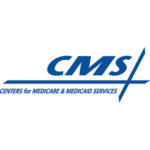 Centers for Medicare & Medicaid Services acting chief Andy Slavitt admonished pharma companies like Mylan (NSDQ:MYL) over unsustainable price increases before the Biopharma Congress in Washington D.C. last week.
Centers for Medicare & Medicaid Services acting chief Andy Slavitt admonished pharma companies like Mylan (NSDQ:MYL) over unsustainable price increases before the Biopharma Congress in Washington D.C. last week.
Mylan came under fire this year after reports showed that the Canonsburg, Penn.-based company raised the price of its emergency allergy epinephrine injector by 500% since it acquired the product in 2007 from Merck. CEO Heather Bresch pledged to expand the company’s patient assistance program and launch a generic device that will cost $300, half of what a 2-pack of EpiPens costs.
Mylan became the poster-child for industry greed this year, as Bresch was called to testify before Congress after several Senators wrote to her demanding a thorough explanation of the company’s pricing strategy. The U.S. Justice Dept. made headlines last week after it reported that it could file charges against generic drug companies such as Mylan and Teva Pharmaceuticals (NYSE:TEVA) by the end of this year.
CMS revealed in October that Mylan overcharged the program for years, misclassifying its EpiPen device as a generic, which allowed the company to pay a 13% rebate instead of the 23% allocated for brand-name products.
“Despite all the attention it has generated this year, Mylan’s Epipen is not even on our top 20 list for either high price increases or spending overall in 2015,” Slavitt said in his speech last week. “Many of these have been ongoing for a while with real patient impact and some are big stories waiting to happen.”
The pharmaceutical industry’s pricing problems came to the forefront of public discussion last year, after Turing Pharmaceuticals raised the price of its malaria drug Daraprim from $13.50 to $750 a pill. “You know, last year when I spoke here, the price increases at Turing were making news, and I told you I didn’t want this industry to be defined by its worst actors,” Slavitt recalled. “I defended the industry then, but the more data that’s revealed, the more bad actors you find, and I’m telling you now: it’s too many.”
Slavitt said that based on current trends, CMS is projecting an average annual increase for total prescription drug spending of 6.7% through 2025. He cited the growth as an “unsustainable” source of pressure for the Medicare program. Many of the drugs with the highest per-unit cost increases in Medicaid were generic drugs, with increases ranging from 140% to nearly 500% between 2014 and 2015.
Innovation and affordability are goals that should work together to increase accessibility, Slavitt suggested. “In every-forward looking industry outside of health care, we see that competition actually fuels innovation, and affordability improves alongside the development of new technologies,” he said. “There are plenty of policy options and certainly a number of ways innovators like you can choose to respond – from disputing the math and fighting it, to looking for win-wins.”
Slavitt reminded the audience members that as an industry, their choices have very real consequences for patients. “What you choose to do as an industry will help define the next several years. So the question is: can we have both innovation and the affordability necessary to make it accessible? I think the answer is yes.”

